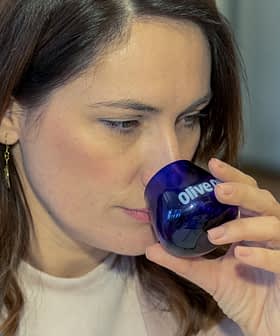Part of our continuing special coverage of the 2021 NYIOOC World Olive Oil Competition.
The world’s largest olive oil-producing region – Andalusia – was responsible for the vast majority of Spain’s 104 awards at the 2021 NYIOOC World Olive Oil Competition.
The region faced similar problems as the rest of Spain, with weather and the Covid-19 pandemic being the most significant issues.
Social media networks went crazy; suddenly, everyone wanted to know our brand and the Gold Award-winning extra virgin olive oil.
Many groves in Andalusia experienced substantially less rainfall than previous years, meaning producers had to implement different methods and harvesting strategies.
Irrigating in the early hours or nighttime was one such practice, and the unseasonably warm temperatures when many were harvesting the olives led to workers picking the fruit at the start or end of the day.
See Also:The Best Olive Oils from SpainAs a result, Andalusia is expected to harvest 1.1 million tons, a 25-year low and 250,000 fewer tons than previously anticipated.
Multiple lockdowns and social distancing impacted the workforce and procedures, both in the groves and the mills. Enforcing new ways of working was the norm, and keeping workers safe was a top priority across the board, although even finding workers was more troublesome last year for many producers.
Exporting was also a key point of concern with obvious cost implications and difficulties sorting logistics. This was compounded by the harsh reality of restrictions the world over, meaning extra virgin olive oil producers could not attend the usual fairs and business meetings, making entering new markets difficult.
Despite all of the challenges, Andalusian producers had yet another extraordinary year at the 2021 NYIOOC. Almazara Andres Aguilar was among the biggest winners, taking home an impressive five Gold and two Silver Awards.
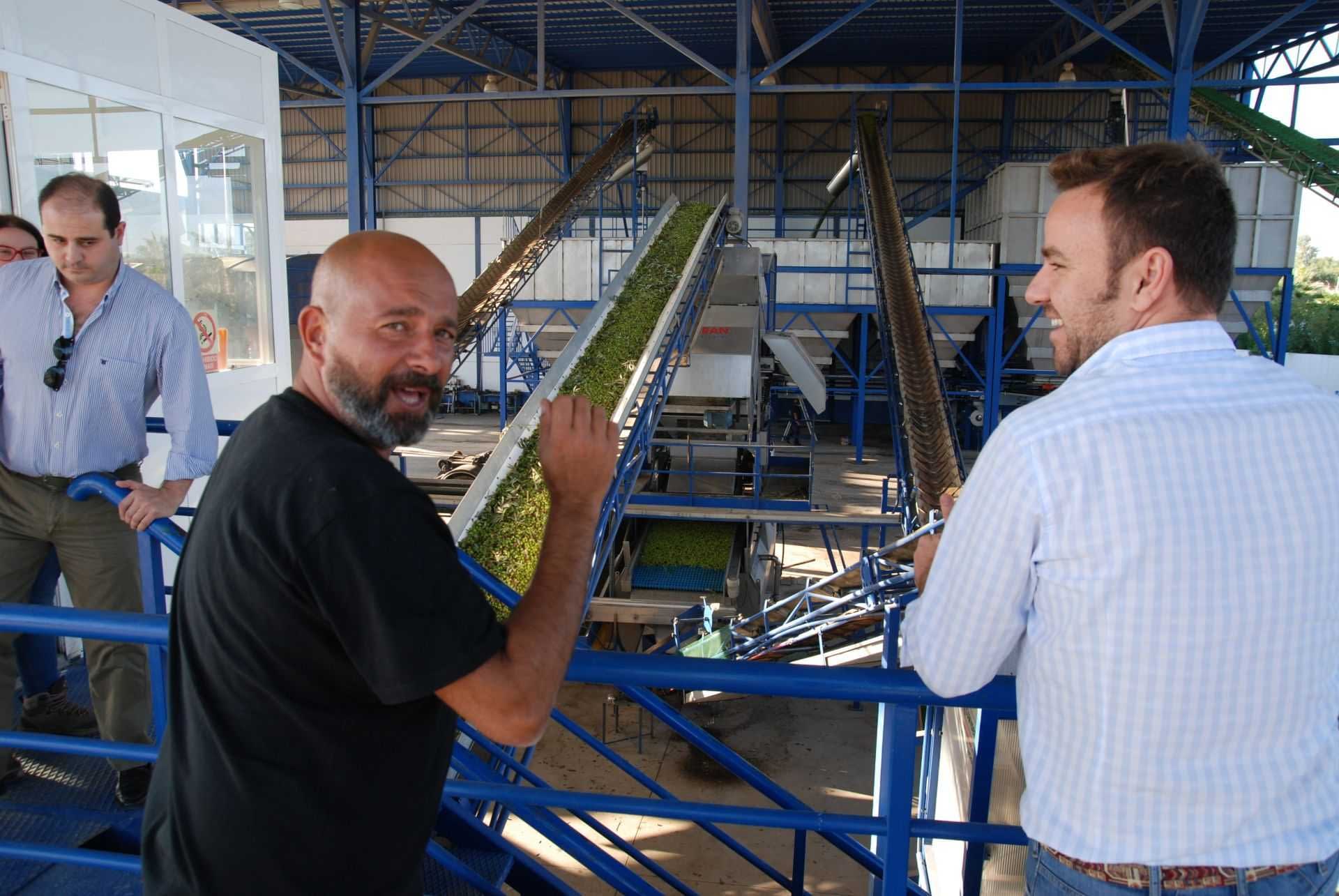
Photo: Almazara Andres Aguilar
“It feels amazing to win so many awards,” Tim Balshi, Soraya Aguilar and Angres Aguilar, the family behind the almazara, told Olive Oil Times. “Our success is a testament to our talented team of experts, who spend all year planning and monitoring fruit quality, weather and of course, creating the ideal environment at our mill to make award-winning oils, which is never an easy task.”
“When we first started to taste this year’s batches last October, we knew all of that hard work had paid off when we tasted high aroma, harmonious green quality olive oils,” they added.
Balshi and the Aguilars believe it is their incredible degree of precision, talented agronomists and quality engineers that set them apart from the competition. However, this work was made more difficult last year.
“The low yields most producers experienced this year had a direct impact on our costs, and it was much more difficult to produce quality extra virgin olive oil than years past,” they said. “We had to fight to make the high-quality green oils we so passionately produce.”
The family, which also imports olive oil into the United States under the auspices of the MillPress Imports company, added that the Covid-19 pandemic also brought plenty of challenges.
“It’s been tricky finding labor, and of course, the distancing makes it challenging to work with our team in noisy environments,” they said. “Of course, the pandemic severely hampered supply chain items such as equipment parts. Logistics and sea container booking has been another unexpected expensive hurdle that further delays the arrival of fresh oils into the U.S., our primary market for sales.”
Another producer who won five Gold Awards, and also a Silver Award, was Oro Bailen, which has specialized in early harvest oils for 15 years.
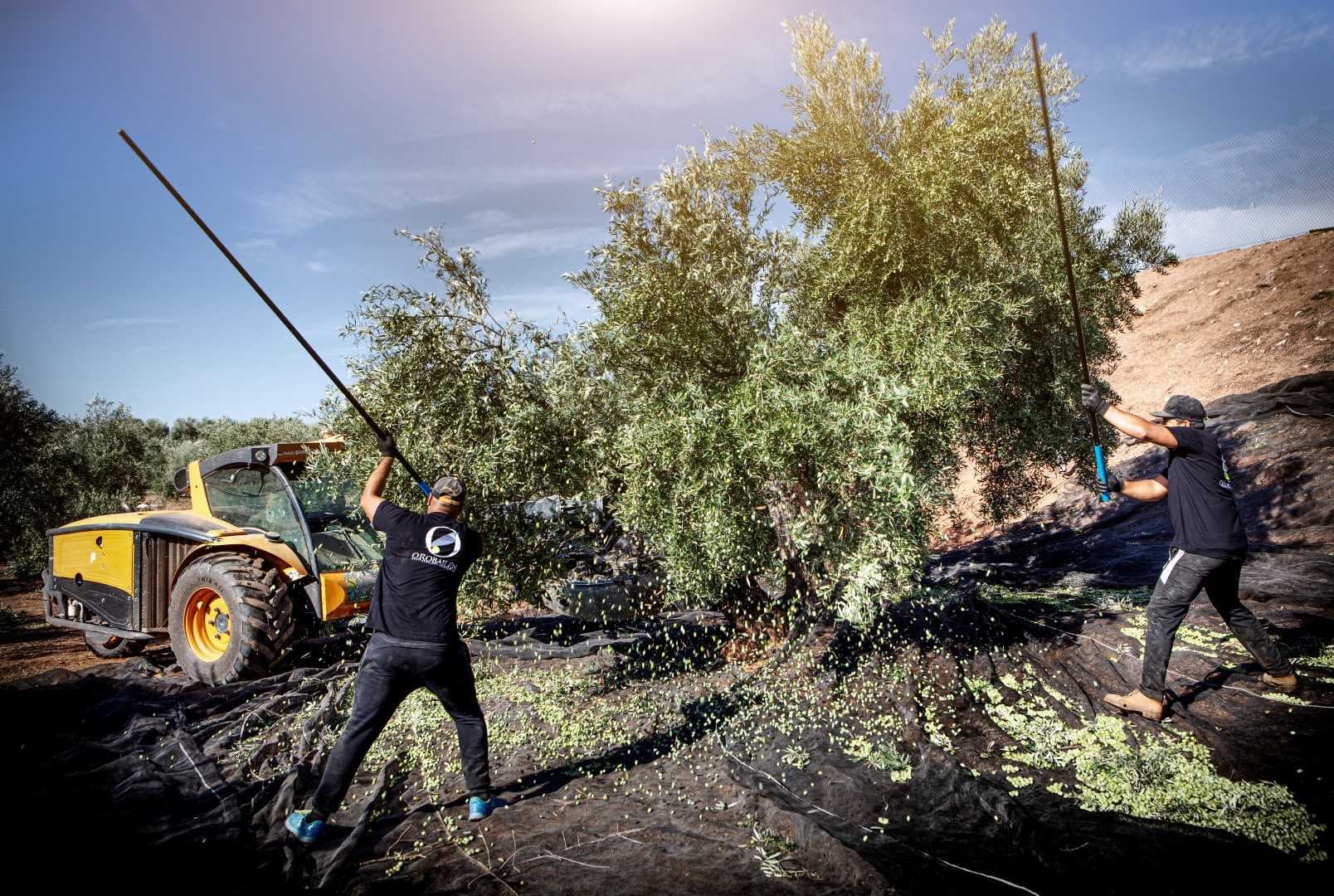
Photo: Oro Bailen
“It is a pleasure to receive the recognition and endorsement of the quality of our oils that with so much care and effort we elaborate each campaign,” Edurne Rubio, the company’s commercial director, told Olive Oil Times.
Already exporting to 35 countries, winning awards from such a highly valued competition as the NYIOOC always helps commercially, especially after a challenging harvest season, Rubio added.
“Every year, we encounter different adversities, due to the natural condition of the terrain, the climate and other factors that can affect production in one way or another,” Rubio said. “But this year, we were also faced with a pandemic and the risk of having to stop production due to contagion to personnel… Fortunately, and taking all precautions, everything went well, and we were very satisfied with the results.”
Oro del Desierto was also among the multi-award-winning Andalusian brands at this year’s competition, earning two Gold Awards. Since 2014, the company has won two Best in Class Awards and 14 Golds at the competition.
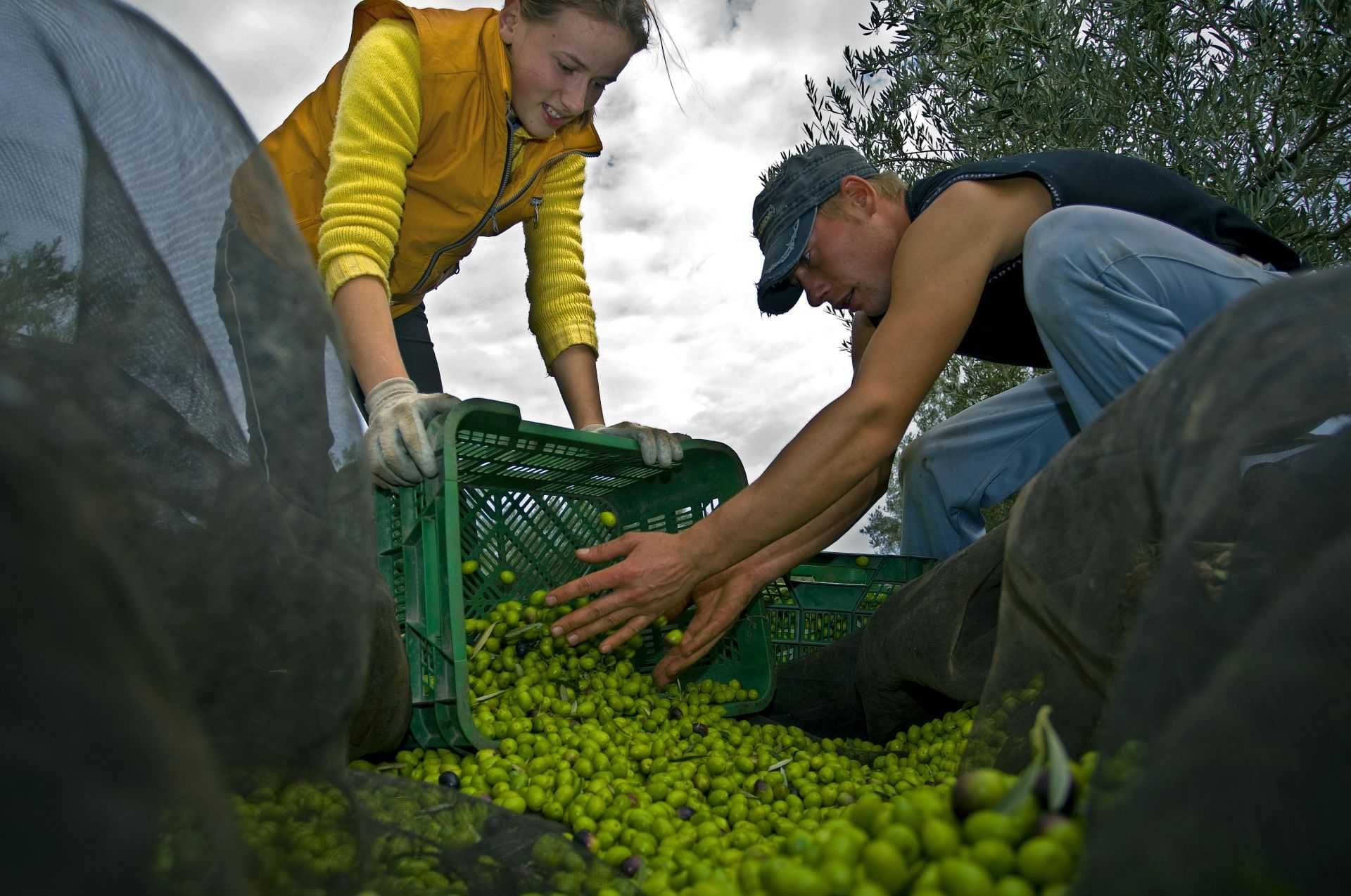
Photo: Oro del Desierto
“We are very happy, the United States is a market of great importance for us, and this contest is highly valued there and in Canada,” Rafael Alonso Barrau, the company’s commercial and export director, told Olive Oil Times. “Apart from being a contest, it is a promotional tool for those markets.”
He added that the unique desert climate in which the company produces its extra virgin olive oil has helped it to stand out each year.
“We are a family business, located in the only desert in all of Europe, with more than 3,000 hours of sun a year and less than 200 liters of rain per square meter,” Alonso Barrua said.
See Also:Andalusian Cooperative Crafts Award-Winning Olive Oil With Soul“This gives our oils unique characteristics, which together with an organic cultivation, sustainable management measures and manufacturing in the mill with extreme care, we obtain a truly unique product due to its origin and way of obtaining it,” he added.
The biggest challenges the producers faced last year were the climate and the pandemic, but they coped admirably with little incidence, Alonso Barrua added.
“The sector never stops, especially in crises, it is when food is most needed,” he said
Indeed, domestic sales in Spain grew by 18.7 percent in the first two months of 2021, compared to the previous period.
Some producers were newer to the NYIOOC and still managed to find success. Campos de Sanaa entered the competition for the second year in a row. They have won Gold Awards both years.
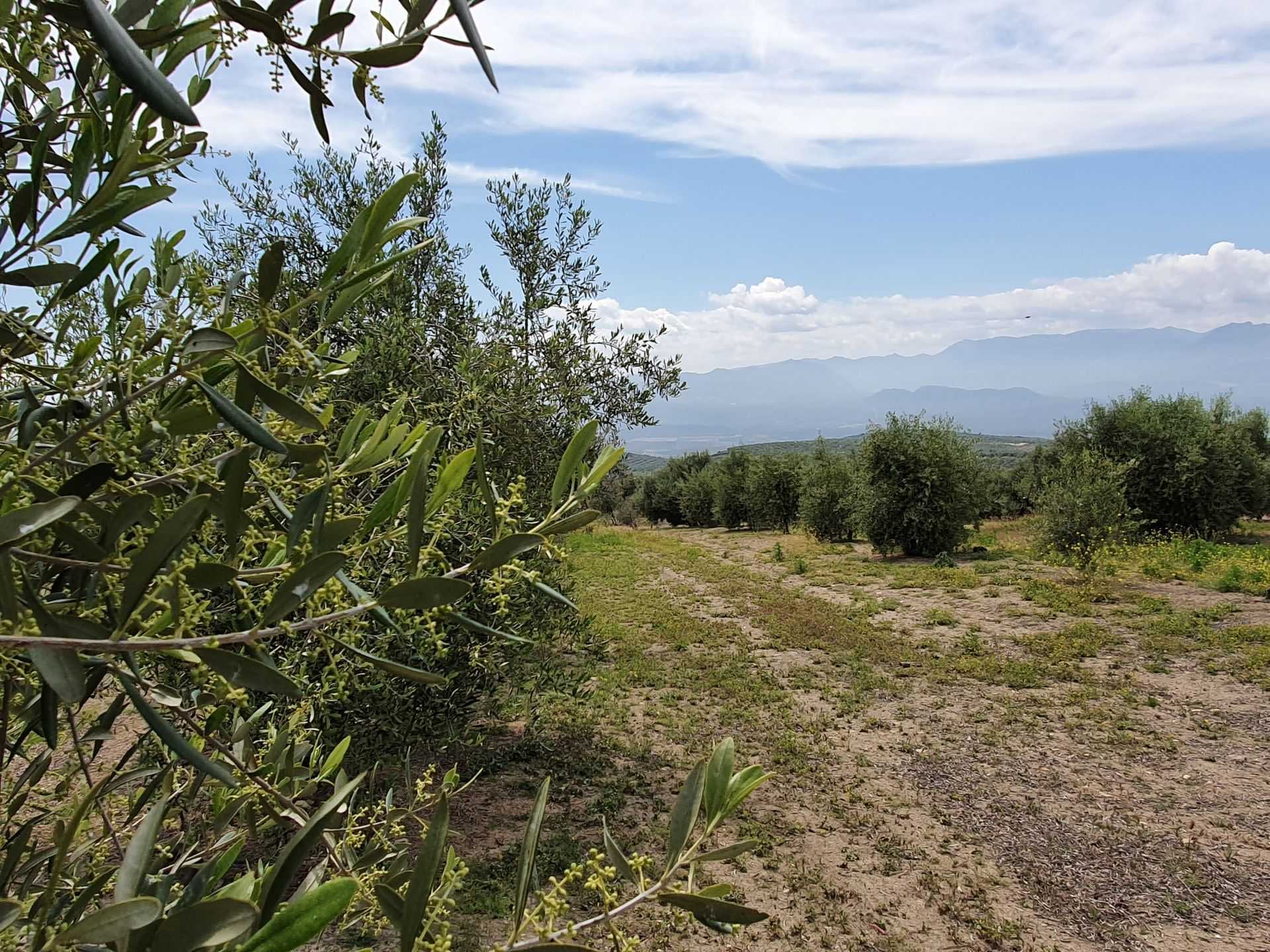
Photo: Campos de Sanaa
“Obtaining such an important recognition as the Gold Award at the NYIOOC not only fills us with joy but also drives us to maintain and improve the quality of our products more and more,” José Baptista, the company’s director, told Olive Oil Times.
Since the company only entered the American market a few years ago, Baptista also believes the recognition will help build trust with business partners over the quality and commitment of the business.
He added that this year’s award is even more gratifying after having to overcome a spike in Covid-19 cases just as the harvest was getting underway.
“In September, October and November, we went through a significant rebound in cases, right at the time of harvesting our early crops, so we had to overcome many obstacles to make the harvest on time,” Baptista said. “Contacting the staff for the day, maintaining the rules of distancing, trying not to risk the health of our workers at all times was a priority.”
An even newer entrant to the NYIOOC was the family business, Oleico Pallarés, which entered for the first time in 2021 and won Gold for their Herriza de la Lobilla brand.
“It was an incredible surprise, we did not believe it, and we had to read it twice to realize that we were not dreaming and we had achieved the Gold Award,” Alvaro Pallarés, the company’s commercial director, told Olive Oil Times.
Pallarés added that the company noticed the impact of winning their first Gold Award from the very first minute.
“Social media networks went crazy; suddenly, everyone wanted to know our brand and the Gold Award-winning extra virgin olive oil,” he said.
The company’s monovarietal Hojiblanca extra virgin olive oil “comes entirely from centenary olive trees in the Osuna countryside of Seville, a place with an olive tradition forged before Roman times,” Pallarés said.
“Our olive trees are framed in a unique natural setting, fertile land in which olive trees grow that results in an extra virgin olive oil with unique aromas with a high concentration of antioxidants, polyphenols, and a high content of vitamin E,” he added.



